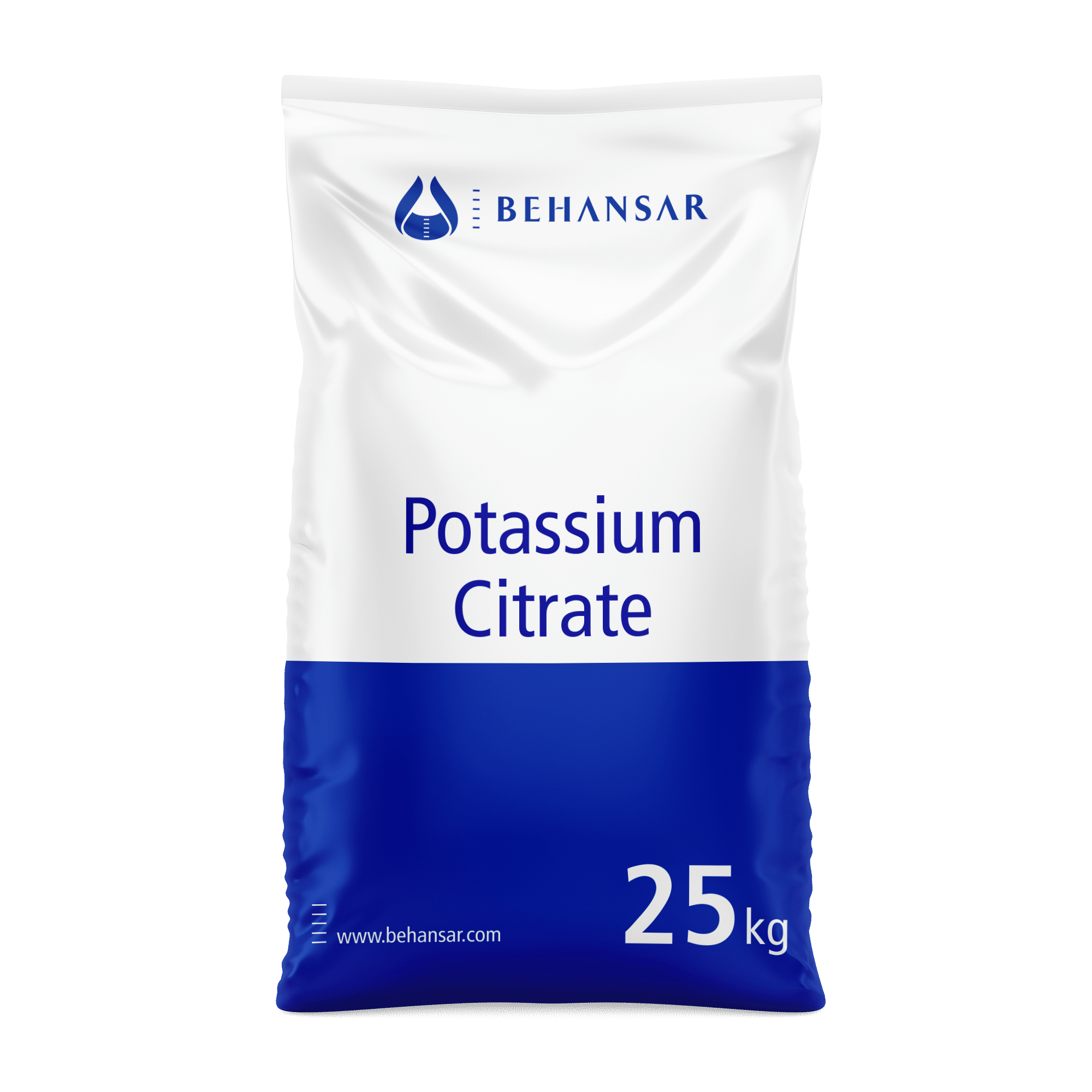Potassium Citrate
| Chemical Formula: | C₆H₅K₃O₇ |
| Molecular weight | 306.40 |
| .CAS No: | 866-84-2 |
| Applications: |

About Potassium Citrate
Potassium citrate (also known as tripotassium citrate) is a potassium salt of citric acid. It is a white, hygroscopic crystalline powder. It is odorless with a saline taste. It contains 38.3% potassium by mass. In the monohydrate form it is highly hygroscopic and deliquescent. Potassium citrate is used to treat a kidney stone condition called renal tubular acidosis. Potassium Citrate is indicated also for the management of hypocitraturic calcium oxalate nephrolithiasis. In 2020, it was the 297th most commonly prescribed medication in the United States, with more than one million prescriptions.
Potassium citrate is rapidly absorbed when given by mouth, and is excreted in the urine. Since it is an alkaline salt, it is effective in reducing the pain and frequency of urination when these are caused by highly acidic urine. It is used for this purpose in dogs and cats, but is chiefly employed as a non-irritating diuretic.
Potassium citrate induces changes in the urine which renders urine less susceptible to the formation of crystals and stones from salts e.g. calcium oxalate, calcium phosphate and uric acid. Increased citrate levels in the urine will make complexation with calcium which decrease the calcium ion activity and decrease the chance for the formation of calcium phosphate crystals. Citrate also inhibits the spontaneous nucleation of calcium oxalate and calcium phosphate.
After oral administration of potassium citrate, its metabolism yields alkaline load. Potassium Citrate therapy appears to increase urinary citrate mainly by modifying the renal handling of citrate, rather than by increasing the filtered load of citrate. In addition to raising urinary pH and citrate, Potassium Citrate increases urinary potassium by approximately the amount contained in the medication. In some patients, Potassium Citrate causes a transient reduction in urinary calcium.
Potassium citrate is an effective way to treat/manage gout and arrhythmia, if the patient is hypokalemic. It is widely used to treat urinary calculi (kidney stones), and is often used by patients with cystinuria. It is also used as an alkalizing agent in the treatment of mild urinary tract infections, such as cystitis.
As a food additive, potassium citrate is used to regulate acidity, and is known as E number E332. It is also used in many soft drinks as a buffering agent.
Frequently used in an aqueous solution with other potassium salts, it is a wet chemical fire suppressant that is particularly useful against kitchen fires. Its alkaline pH encourages saponification to insulate the fuel from oxidizing air, and the endothermic dehydration reaction absorbs heat energy to reduce temperatures.
| Product Number | Product Name | Form | Pharmacopoeia | Solvency | Storage conditions | Color | Purity | Additional information |
|---|---|---|---|---|---|---|---|---|
| 151300022 | Potassium Citrate | Powder | USP | Freely soluble in water; very slightly soluble in alcohol. | Preserve in tight containers. | White granular powder. | 99.0%-100.5% | Transparent crystals or granular powder. |

